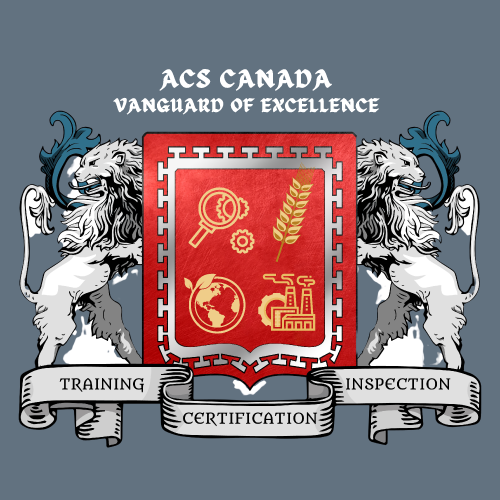SUSTAINABLE WATER STANDARD

The Sustainable Use of Water Standard aims to achieve the socially and culturally equitable, environmentally sustainable, and economically beneficial use of water. It emphasizes stakeholder inclusion and engages in site- and catchment-based actions to promote responsible water management. The standard covers various aspects including water governance, water balance, water quality, Important Water-Related Areas (IWRAs), and Water, Sanitation, and Hygiene (WASH). By understanding their water use, catchment context, and shared concerns, good water stewards can take meaningful individual and collective actions that benefit people, the economy, and nature. (Reference: International Water Stewardship Standard)
The water standard framework is structured around five key steps that guide organizations in achieving water stewardship:
1. Gather and Understand: This step involves collecting data and information to assess the organization's water use, risks, and impacts. It includes understanding the water context, stakeholder engagement, and identifying relevant catchments.
2. Commit and Plan: In this step, organizations make a commitment to water stewardship and develop a plan to address the identified risks and opportunities. This includes setting goals, establishing targets, and defining actions to improve water management practices.
3. Implement: The implementation step focuses on executing the planned actions and initiatives. Organizations work towards improving their water use efficiency, reducing pollution, and enhancing water-related ecosystem services. They also collaborate with stakeholders and implement water management strategies at the site and catchment levels.
4. Evaluate: Evaluation involves monitoring and assessing the effectiveness of the implemented actions. Organizations measure their progress, analyze performance against set targets, and identify areas for improvement. This step ensures that the actions taken are achieving the desired outcomes and allows for adjustments if necessary.
5. Communicate and Disclose: The final step emphasizes the importance of transparent reporting and communication. Organizations share information about their water stewardship efforts, progress, and outcomes with stakeholders, customers, and the public. Effective communication helps build trust, foster collaboration, and inspire others to adopt sustainable water practices.
Each step of the framework includes specific criteria that need to be addressed, and these criteria are further supported by indicators for compliance. The indicators are categorized as 'core' and 'advanced,' with the latter promoting continual improvement and higher levels of water stewardship. While the steps are generally followed in order, they are not strictly sequential, and actions associated with specific criteria and indicators may occur in parallel. (Reference: International Water Stewardship Standard)
By following the water standard framework, organizations can establish robust water stewardship practices, improve their water management performance, and contribute to sustainable water use, benefiting both their own operations and the wider environment.
Working with ACS Canada for certifying the Water Standard offers several benefits for organizations:
- Credibility and Recognition: ACS Canada is a reputable certification body known for its rigorous evaluation processes. By obtaining water standard certification from ACS Canada, organizations gain a credible endorsement that demonstrates their commitment to responsible water stewardship. This certification provides recognition and validation of their efforts, enhancing their reputation among stakeholders, customers, and the public.
- Compliance with Global Standards: ACS Canada ensures that organizations comply with the requirements outlined in the IWSS. By certifying with ACS Canada, organizations align themselves with internationally recognized best practices in water stewardship. This compliance helps organizations meet the expectations of regulatory bodies, customers, and other stakeholders, mitigating potential risks and demonstrating responsible corporate citizenship.
- Enhanced Water Management: The certification process with ACS Canada involves a comprehensive assessment of water management practices. By undergoing this evaluation, organizations gain valuable insights into their water use, risks, and impacts. This information enables them to identify areas for improvement and implement more effective water management strategies. ACS Canada's certification helps organizations optimize their water use efficiency, minimize pollution, and protect water-related ecosystems.
- Stakeholder Engagement and Collaboration: ACS Canada emphasizes stakeholder inclusivity and engagement throughout the certification process. This approach encourages organizations to collaborate with local communities, authorities, and other stakeholders to address water-related challenges collectively. By working with ACS Canada, organizations can demonstrate their commitment to transparent and meaningful engagement, fostering positive relationships and building trust with stakeholders.
- Competitive Advantage and Market Differentiation: IWSS certification by ACS Canada sets organizations apart from their competitors. Certification demonstrates a commitment to sustainable water management practices, which can be a compelling selling point for customers who prioritize environmentally responsible businesses. It enhances organizations' competitive advantage, potentially opening up new market opportunities and attracting customers who value water stewardship.
- Continuous Improvement and Performance Monitoring: ACS Canada's certification process includes regular audits and assessments to ensure ongoing compliance with IWSS requirements. This helps organizations maintain focus on continual improvement and drives them to consistently meet and exceed water stewardship goals. The monitoring and evaluation provided by ACS Canada enable organizations to track their progress, identify areas for further enhancement, and showcase their commitment to long-term sustainability.
- Positive Environmental and Social Impact: By certifying with ACS Canada for IWSS, organizations actively contribute to water conservation, protection, and sustainable use. This certification demonstrates their dedication to preserving water resources, safeguarding ecosystems, and supporting local communities. It allows organizations to make a tangible difference and align their operations with global sustainability goals.
Working with ACS Canada for water certification offers organizations credibility, compliance with global standards, enhanced water management practices, stakeholder engagement opportunities, competitive advantage, continuous improvement, and the ability to create positive environmental and social impact. ACS Canada's certification demonstrates a commitment to responsible water stewardship and provides organizations with the tools and recognition to thrive in a sustainable future.
Training at ACS Canada
ACS employs accelerated learning methods to ensure a comprehensive grasp of all certificates. Our approach involves contextualizing your learning through a wide array of options, including classroom instruction, workshops, as well as interactive and online sessions.
Unfortunately, there are no courses available for this certificate in our current calendar. However, please feel free to reach out to us for updates and to explore potential future offerings for the course.

